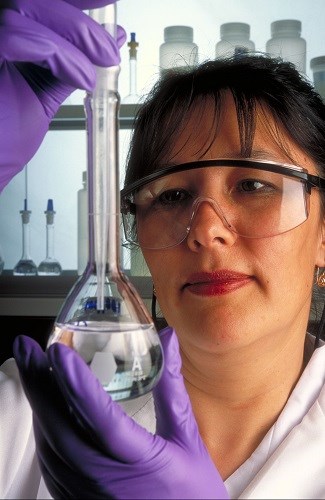PLA Supplier Gets Grant To Explore Biomethane As Feedstock
NatureWorks and Calysta receive DOE grant aimed at ongoing program to develop Ingeo PLA feedstock diversification.
The Bioenergy Technologies Office of the Department of Energy (DOE) has just awarded a grant to Minnetonka, Minn., one of the world’s leading PLA suppliers, and of Menlo Park, Calif., which has been developing new Biological Gas-to-Liquids and Biological Gas-to-Chemicals technologies using methane as a new feedstock for high value chemicals and transportation fuels with reportedly cost and performance advantages over current processes.
The $2.5-million multi-year grant will support the two firms’ ongoing program that aims to sequester and use methane, a potent greenhouse gas, as a feedstock for NatureWorks’ Ingeo PLA biopolymers and intermediates. It will bolster the joint effort to meet the specific goal of transforming, via new and advanced fermentation processes, renewable biomethane into lactic acid, the building block for PLA.
This R&D collaboration with Calysta addresses NatureWorks’ strategic interests in feedstock diversification and a structurally-simplified, lower-cost Ingeo production platform and leverages Calysta’s Biological Gas-to-Chemicals platform for biological conversion of methane to high-value chemicals. For NatureWorks, methane could become an additional feedstock several generations removed from the simple plant sugars used today in a lactic acid fermentation process at the company’s Blair, Nebraska Ingeo production facility.
Calysta has demonstrated lab-scale production of lactic acid from methane, a major milestone in the project, and the company expects to complete fundamental R&D within the next couple of years, enabling pilot production within three-to-five years.
A greenhouse gas that is 20 times more harmful than CO2, methane is generated by the natural decomposition of plant materials and is a component of natural gas. Biomethane refers specifically to renewably sourced methane produced from such activities as waste-water treatment, decomposition within landfills, farm wastes, and anaerobic digestion. If successful, the technology could directly produce lactic acid from any of these methane sources.
Want to find or compare materials data for different resins, grades, or suppliers? Check out Plastic Technology’s Plaspec Global materials database.

Related Content
-
NPE2024 Materials: Spotlight on Sustainability with Performance
Across the show, sustainability ruled in new materials technology, from polyolefins and engineering resins to biobased materials.
-
Research Deems Bioplastics, Wood Pulp a Sustainable, Economic Alternative for Rigid Packaging
Farrel Pomini and FPInnovations produce biodegradable compound for molding, extrusion and thermoforming applications.
-
ICIS Launches: Ask ICIS Generative AI Commodities Assistant
Said to be the first of its kind, this AI assistant will enhance access to ICIS’ intelligence and insights for the energy and chemical markets.









